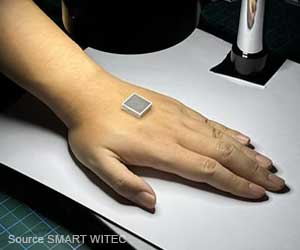The mobile spirometer from Cohero Health pairs with a smartphone or tablet, enabling real-time measurement and reporting of critical lung function.

The mobile spirometer pairs with a smartphone or tablet, enabling real-time measurement and reporting.
The device integrates with Cohero Health’s mobile asthma and Chronic obstructive pulmonary disease (COPD) management platform. The device includes bluetooth sensors that attach to maintenance and rescue medication and mobile apps that track medication usage, motivate, remind, and reward patients for improved adherence to prescribed medication.
Cohero Health Co-founder and CEO Melissa Manice, PhD, MPH, said, "We are enhancing respiratory care by recording critical measurements over time outside of a physician’s office. This longitudinal view of changes in lung function over time, in parallel with medication adherence tracking, equips physicians to partner with their patient to make more informed treatment decisions together. We’re really excited to be leading a new era of collaborative data driven clinical decisions."
The Cohero Health platform has been deployed in closed pilots in healthcare systems. Early results have shown a 2.5 times increase in medication adherence, and 100% reduction in hospitalizations. The company is expanding to additional pilots ahead of full commercial launch of their full platform later this year.
“The inclusion of a mobile spirometer in our platform allows stakeholders to track, for the first time ever, how patients are using their medication, and how they are responding to their medication, in real-time. Through robust tracking, motivating better behaviors, and early identification of potential acute events, the Cohero Health platform enables better patient management, reduced costs to the healthcare system, and most importantly, healthier patients,” said Cohero Health Co-founder and COO, Daniel Weinstein.
Source-Medindia
 MEDINDIA
MEDINDIA




 Email
Email





